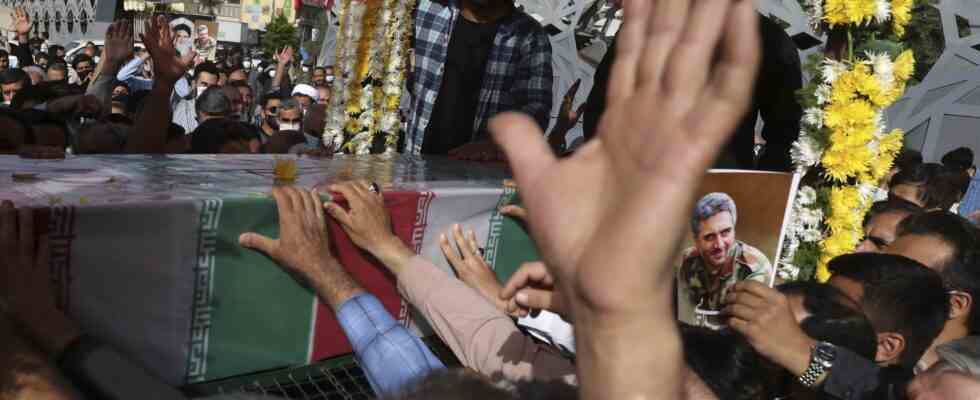As of: 06/24/2022 4:27 p.m
Iran and Israel accuse each other of attacks and plots. An alleged Iranian commando was arrested in Istanbul. And in Iran there is a whole series of attacks that are probably aimed at the nuclear program.
On June 15, Turkish special units stormed a hotel and an apartment in Istanbul and arrested five Iranians. They were apparently commissioned to assassinate a retired Israeli diplomat and other Israelis.
A week later, Israeli Foreign Minister Yair Lapid traveled to Ankara and thanked his Turkish counterpart Mevlut Cavusoglu for his commitment. Israeli citizens have been saved due to diplomatic and security cooperation between Israel and Turkey, Lapid said.
The rulers in Tehran must have followed the meeting in Ankara with eagle eyes. After the successful cooperation between the Israeli secret service Mossad and the Turkish secret service MIT, Hossein Taeb, head of the secret service of the Iranian Revolutionary Guards, which largely controls the state, lost his post. On Friday morning, the spokesman for the Iranian foreign ministry accused Israel of wanting to damage the “Zionist regime” between Ankara and Tehran.
Poor prospects for nuclear deals
All of this is happening as success in negotiations for a renewed nuclear deal between Iran on the one hand and the US, Russia, China, Britain, France and Germany on the other looks ever more remote.
Just two weeks ago, Tehran shut down 27 cameras monitoring uranium enrichment at the Isfahan and Natanz plants. 40 cameras, which the Vienna-based International Atomic Energy Agency IAEA can use to monitor uranium production, are still switched on. Rafael Grossi, head of the Vienna authority, warned that the step would create less transparency, more doubt and greater uncertainty.
Israel doesn’t believe Iran at all
It’s no secret that Israel is critical of a renewed agreement. In Jerusalem, the Iranians are not believed at all. Representatives of the Islamic Republic too often openly express intentions to annihilate the Jewish state. Too much Iranian money has flowed into the hands of the Hamas or Hezbollah militias, which regularly attack Israel. For years there have been events in Iran that are attributed to Israel and apparently aim to slow down the nuclear program.
On June 20, the Israeli newspaper “Jerusalem Post” reported that an explosion could be heard in western Tehran last Saturday morning. Satellite imagery suggests an Islamic Revolutionary Guards missile base was hit. Residents of the district confirmed the ARD the sound of an explosion.
A similar incident happened in February. At that time, a facility for the construction of military drones in the west of the country was attacked. Israel never confirms it was behind the actions. But in addition to rockets, there are assassinations and cyber attacks.
Noticeable accumulation of deaths
A good year and a half ago, an Iranian nuclear physicist was murdered, whom observers call the father of the nuclear program. In the past few months, an engineer, a military officer, an aeronautical scientist and an Air Force pilot have all died. Rumors abounded that Israel’s long arm was involved.
Digital infrastructures also break down again and again. In April last year, the electricity at the Natanz nuclear enrichment plant went out. Israeli media wrote that it could have been a cyber attack. Three weeks ago, the head of Tehran City Council blamed Israel for a cyber attack on the city government. A few days later, the passport control system at Tehran International Airport failed. Again there was speculation about Israeli malware.
A poster in Tehran recently commemorates the murdered officer of the Revolutionary Guards, Hassan Sayyad Khodaei. Iran blames Israel for the crime.
Image: AP
Iran must expect further action
Tehran must expect further action, because the Israeli government has announced in the so-called octopus doctrine that in future it will no longer only attack the enemy’s allies, such as the Hezbollah or Hamas militias, but also representatives of the Iranian power apparatus itself.
Whether the complicated situation will lead the Iranian leadership to be more cooperative in negotiations for a nuclear deal or to block it is hard to predict. No one involved wants to speak of any significant progress at the moment.

